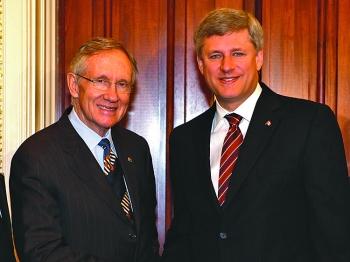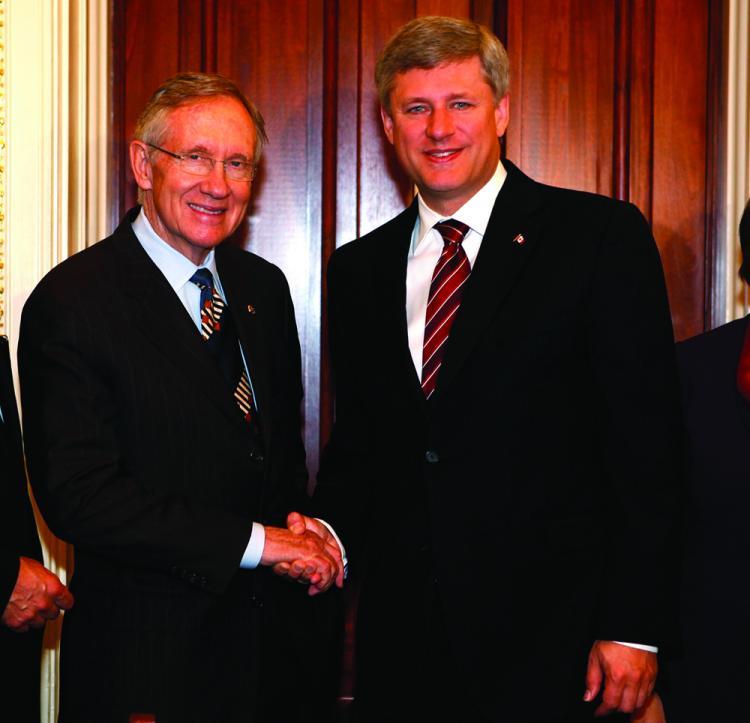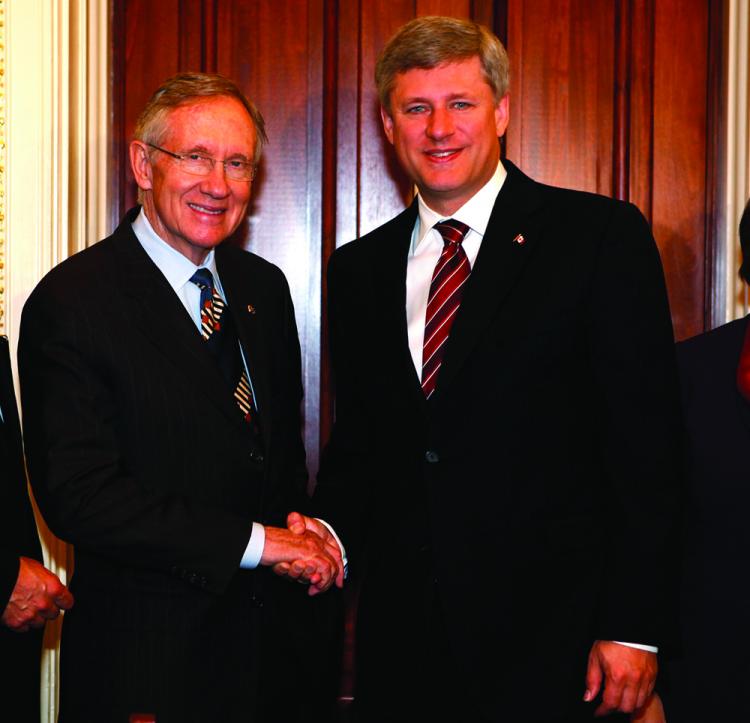Have you ever wondered what Americans really think of Canada?
Simon Fraser University political science professor Alex Moens did, and his resulting report reveals attitudes and perceptions the American politicians hold toward their neighbour to the north.
By analyzing transcribed congressional debates from 2001-2010, Moens found that the U.S. Congress rates Canada high on energy exports, foreign affairs, and environmental management.
But American senators and members of the House of Representatives were found to be critical of Canada on border security, free trade, and health care, said the report, issued by the Fraser Institute.
“I was surprised how often they spoke about Canada. I had thought that perhaps Canada wasn’t very much of a subject that they would think about, but in the 10 years we found nearly 2,000 major comments about Canada,” Moens says.
Although American legislators were impressed with Canada’s energy production and record of environmental management, they saw our border security as lax and vulnerable to terrorism. Some legislators continue to believe Canada was the source of some of the 9/11 hijackers, while others view Canada as a source of illicit narcotics.
“When discussing border security, American politicians tend most often to speak of the Canadian and Mexican borders in roughly the same manner,” says Moens. “Their concern about the threat of terrorists staging attacks from Canada remains high.”
In the area of foreign affairs, politicians on both sides of Congress praised Canada’s contributions to NATO (North Atlantic Treaty Organization), continental defence, and commitment to securing Afghanistan.
But American legislators do not consider Canada’s single-payer, universal health care system to be an ideal prototype for their country.
As for free trade, if American access to cheaper prescription drugs were taken away, support for free trade dropped significantly among both Democrats and Republicans.
“Our analysis shows that Republicans have tended to be very assertive in their dismissal of Canada’s system, while Democrats did not explicitly defend it as an appropriate model for the U.S,” Moens says.
The information revealed in the study is very important for all Canadians, Moens notes, because of Canada’s intimate trade and security relationship with the U.S.
“I intended with this study that Canadians would think again about the need for us to better inform Americans about Canada. I think one of the conclusions you can draw from this study is that American politicians still lack good information about a lot of Canadian issues,” he said.
“I would say the biggest thing ... would be how we as Canadians can help to inform our American neighbours to have better information or a more positive impression of our country.”
Moens plans to continue research in this area, specifically on how to better inform Americans on Canada and Canadian policy.







Friends Read Free